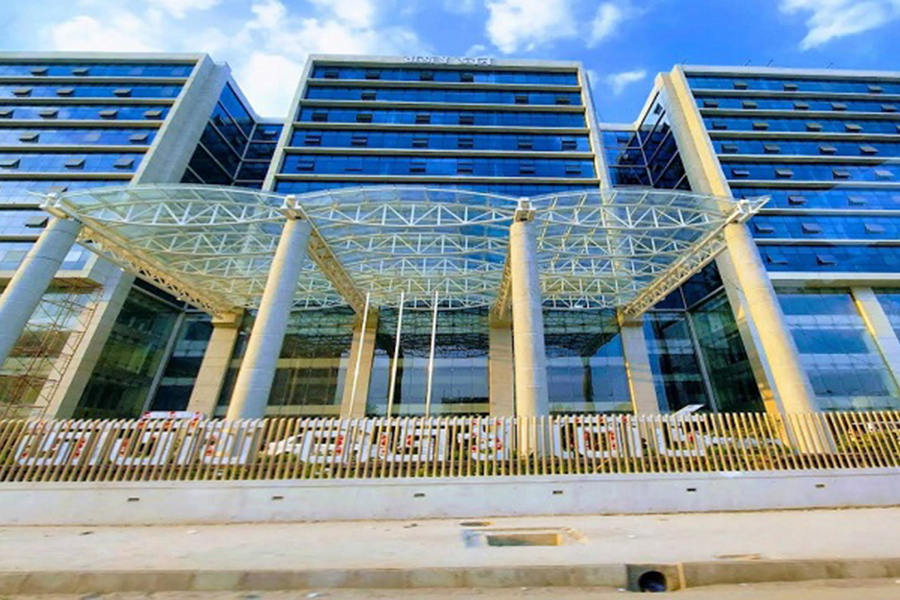Tax audit selection
NBR halts manual system, preparing for digital one
Says its chairman

Published :
Updated :

National Board of Revenue (NBR) Chairman Md Abdur Rahman Khan on Sunday said the NBR has halted manual tax-audit selection in preparation for a risk-based digital audit system and plans a performance-measurement mechanism to track all the suspects made by tax officers.
He also said all potential taxpayers who did not submit tax returns are now getting text notices and tax collection from them will be confirmed following inquiry, inspection, and assessment.
The revenue board chairman made the remarks while speaking as the chief guest at a seminar titled "Fiscal Issues for National Budget 2025-26 to Foster Economic and Business Growth".
The Institute of Chartered Accountants of Bangladesh (ICAB), in collaboration with the Foreign Investors' Chamber of Commerce and Industry (FICCI) and the Japan-Bangladesh Chamber of Commerce and Industry (JBCCI), hosted the event at a hotel in the capital.
At the programme, economists, experts, and both local and foreign investors highlighted concerns over policy inconsistency, harassment by tax officials during audits, and a higher effective tax rate than the official one, often driven by bribery.
"We are trying to introduce a performance measurement system so that we can track all the suspects made by our officers and then we can assess the quality of assessments," said the NBR chairman.
He said the government can reward or punish officers based on the assessments, which will give comfort to business people.
Khan said the tax authorities have initiated major reforms - some already underway - to reduce taxpayer harassment and boost revenue collection by improving systems and introducing technology.
Dr M Masrur Reaz, chairman of Policy Exchange Bangladesh, and Snehasish Barua, partner at Snehasish Mahmud & Co, presented two papers at the event chaired by Mohammed Humayun Kabir, former president of ICAB.
Dr Reaz highlighted the formidable challenges facing the economy, emphasising that its resilience is being tested amid global economic uncertainties.
"With inflation hovering near double digits and foreign direct investment at a six-year low, Bangladesh must take decisive fiscal and monetary action to navigate these headwinds," he said.
The economist called for urgent structural reforms in debt management, governance, and banking sector regulation, stressing that rising debt servicing costs are limiting productive investments, while fragmented institutional coordination hampers effective policy responses.
FICCI President Zaved Akhtar acknowledged the NBR's recent reform progress and emphasised the need to boost direct taxation over indirect taxes.
He noted that the effective tax rate remains high despite low nominal rates and stressed that the customs should focus more on facilitating trade and investment rather than solely collecting revenue.
Optimising tax rates - through rationalising tax deducted at source (TDS), eliminating inadmissibility thresholds, and phasing out minimum tax - will be key to attracting foreign investment, added Akhtar.
ICAB President Maria Howlader emphasised the need for predictable tax policies, digitalisation, and structural reforms to create a more business-friendly environment.
Highlighting inflation, enhancement of revenue mobilisation, and promotion of sustainable investment, he said, "We need to set a predictable tax policy and ensure consistency. Investors and businesses plan on the basis of the existing policy, but sudden changes within six months discourage them."
JBCCI President Tareq Rafi Bhuiyan (Jun) welcomed the upcoming budget's focus on improving ease of doing business, highlighting its potential to attract investment and foster stronger Bangladesh-Japan economic ties.
The seminar was attended by key stakeholders, including FICCI Executive Director TIM Nurul Kabir and JBCCI Executive Director Tahera Ahsan, as well as representatives from various embassies, and member companies of FICCI and JBCCI.
Mohammad Iqbal Chowdhury, CEO of LafargeHolcim Bangladesh, said, "Tax education should be a part of our education system as so many people have a lack of knowledge regarding taxation."
jahid.rn@gmail.com


 For all latest news, follow The Financial Express Google News channel.
For all latest news, follow The Financial Express Google News channel.